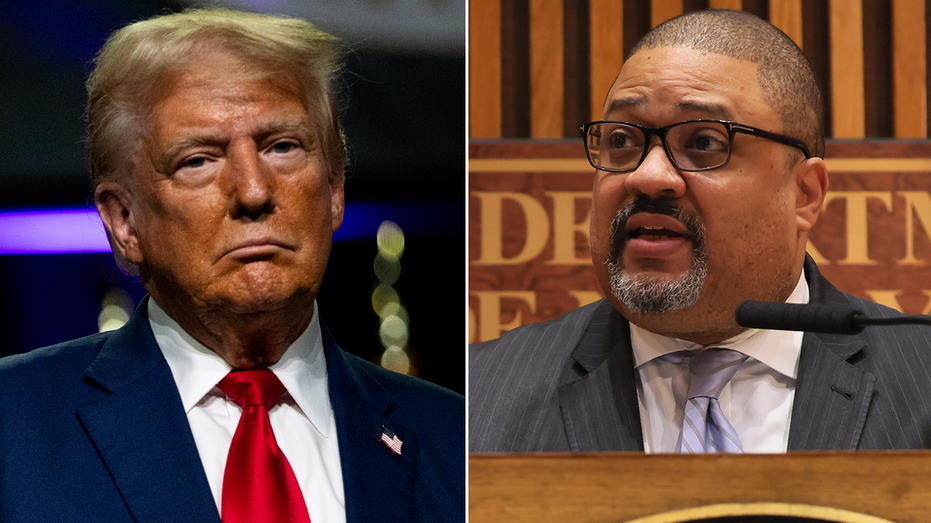Lawyers for former President Donald Trump on Tuesday again requested that his New York criminal case be transferred to federal court, citing the Supreme Court’s presidential immunity ruling and arguing that he cannot be prosecuted for official acts he performed as president.
Trump’s lawyers first requested in August to shift New York v. Trump to federal court, but U.S. District Judge Alvin Hellerstein rejected the request in September.
Trump’s attorneys are arguing that Manhattan District Attorney Alvin Bragg’s office “violated the Presidential immunity doctrine in grand jury proceedings, and again at trial, by relying on evidence of President Trump’s official acts during his first term in Office.”
Trump lawyers argued that the “use of official-acts evidence in grand jury proceedings and at trial violated the Constitution and threatens the ability of all future Presidents to fulfill that role.”
TRUMP ASKS FEDERAL COURT TO TAKE OVER BRAGG CASE WEEKS BEFORE SENTENCING
Bragg charged Trump with 34 counts of falsifying business records in the first degree. Trump pleaded not guilty.
A Manhattan jury found the former president guilty on all counts during an unprecedented six-week trial in New York City earlier this year.
Trump’s attorneys have already moved to appeal the verdict.
Trump attorney Todd Blanche said the verdict should be overturned, also citing the Supreme Court’s ruling on presidential immunity granting presidents limited immunity for official acts.
JUDGE MERCHAN DELAYS TRUMP SENTENCING UNTIL AFTER ELECTION
In his arguments for dismissal, Blanche argued that Bragg offered official acts as evidence during the six-week-long unprecedented criminal trial. Blanche said that included official White House communications with staffers like Hope Hicks, Madeleine Westerhout and others.
The Supreme Court ruled in Trump v. United States that a former president has substantial immunity from prosecution for official acts in office but not for unofficial acts. The high court said Trump is immune from criminal prosecution for “official acts” but left it to the lower court to determine exactly where the line between official and unofficial is.
Judge Juan Merchan will also now make a decision on Nov. 12 on Trump’s motion to vacate.
Trump’s initial sentencing was set for July 11 — just days before the Republican National Convention, where he was set to be formally nominated as the 2024 GOP presidential nominee, but Merchan agreed to delay that until Sept. 18.
Last month, Merchan granted Trump’s request to delay sentencing until after the presidential election. The sentencing is now scheduled for Nov. 26.
Fox News’ Maria Paronich contributed to this report.
























